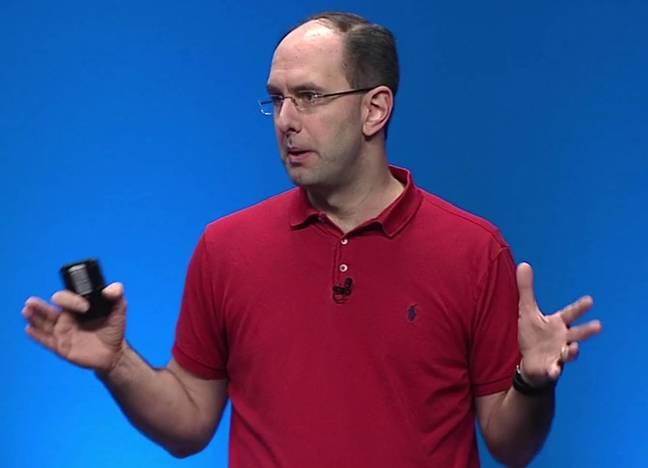This article is more than 1 year old
AWS jabs at rivals, proclaims cloud the 'new normal'
We do hybrid too, insists senior VP Andy Jassy
Can anyone compete with AWS?
Can anyone compete? Jassy lists businesses going "all-in" on AWS, or in other words closing all their data centres in favour of AWS cloud infrastructure, including Netflix, Intuit, Time Inc, AOL, Hertz, Kempinski and, most recently, The Guardian.
Capital One's CIO Rob Alexander came on stage to say that his company is reducing its data centres from eight to three by 2018. Security? The security model developed with AWS "enables us to operate more securely in the public cloud than we can even in our own datacenters," said Alexander; though General Electric's CIO Jim Fowler, which is reducing from 34 to four data centres, said that the last four "will only hold what we value most secretly", suggesting an alternative viewpoint.
What of Microsoft, positioned by Gartner as number two in the cloud infrastructure space? Speaking at the company's AzureCon event at the end of September, Corporate VP Scott Guthrie claims that the service is adding 90,000 new subscriptions every month, and now has 24 regions, "more than AWS and Google combined." He announced new services including GPU-enabled VMs - focused on highly parallel computing using NVidia's CUDA language - as well as unified security monitoring, general availability of the Azure IoT (Internet of Things) back-end suite, preview of an Azure IoT messaging hub, and a new Azure container service based on Apache Mesos.

Microsoft's Scott Guthrie speaks at AzureCon
Microsoft's selling point, though, is not range of services, for which it is dwarfed by AWS, but integration with the rest of its cloud platform, especially Office 365 which provides email and collaboration services; and a focus on hybrid cloud. "Microsoft is one of only three hyper-scale cloud providers. Unlike the other two, we enable solutions to be deployed not just in hyper-scale cloud regions, but also in customer and service-provider data centres," says Guthrie.
AWS has no equivalent to Microsoft's Azure Stack, which provides a subset of Azure for on-premises or service provider deployment. AWS would not regard that as a weakness, since cloud-scale architecture cannot be replicated in small deployments, but the ability to move out of the cloud as well as into it may be welcome among customers fearful of foreign government snooping or other less comfortable aspects of outsourcing infrastructure to huge global corporations.
The cloud computing sector has a long way still to grow. AWS will take a large chunk of that business, but there is room for at least some competition, as Jassy's jabs would seem to acknowledge.®
